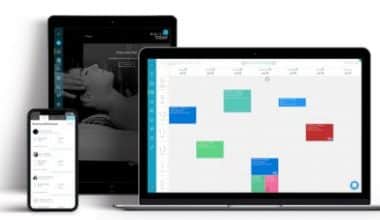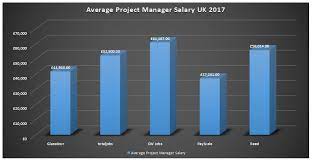People interested in professions in business intelligence (BI) need to be conversant with specific software tools, just like a handyman requires a toolbox full of hammers, nails, and screwdrivers. Business intelligence includes the processes, plans, and resources that organizations employ to gather, prepare, and examine data. Based on the insights discovered, a Business Intelligence Platform can help firms find new ways to increase their return on investment (ROI) and competitive edge. Consider using one of these tools to advance your career because they are utilized by all company users, industries, and divisions. Here’s a look at the best Enterprise Business Intelligence platform, its benefits, and examples of the most commonly used free tools.
What is a Business Intelligence (BI) Platform?
A Business intelligence Platform collects, processes, and analyzes large amounts of structured and unstructured data from both internal and external systems. Documents, pictures, emails, movies, journals, books, posts on social media, and more can all be considered data sources. The data can be presented in user-friendly formats like reports, dashboards, charts, and graphs by BI Platforms, which find this information through queries.
The Platforms are capable of carrying out tasks like text mining, predictive analytics, performance management, analytics, reporting, and data mining, among many other things. So that they can base their decisions on forecasts, market trends, and key performance indicators (KPIs), employees can use this information to their advantage.
Business Intelligence Platform Benefits
#1. Improved data quality
Only high-quality data is used for analysis with the help of the Best Business Intelligence Platform, which automatically detects and removes erroneous, insufficient, or duplicated data. Additionally, it enforces data standards and regulations across many systems, assuring data correctness and consistency while lowering the possibility of mistakes that may occur during human data entry. Additionally, businesses can create a more comprehensive view of their operations by combining various data sources with the help of business intelligence technologies.
#2. Increased clarity
Real-time visibility into corporate operations and performance is provided by business intelligence tools. This makes it possible for businesses to track development and see potential problems immediately. BI software enables firms to pinpoint areas for improvement and take appropriate corrective action by giving a comprehensive picture of key indicators.
#3. Better decision-making
The software helps them make strategic decisions in areas like product development, marketing, sales, and other crucial ones by providing firms with useful operational data. Organizations can better evaluate their strengths and shortcomings by using Business Intelligence Platforms, which can provide helpful data on staff productivity, revenue, and department-specific performance.
BI software can spot trends, patterns, and opportunities by analyzing vast amounts of data from many sources. Businesses must act swiftly to make well-informed choices to keep consumers and money from being lost to competitors.
#4. Improved effectiveness
With the help of business intelligence software, organizations may maximize their resources and streamline their operations, reducing costs and boosting productivity. The software gives firms information on inventory management, supply chain optimization, and production planning so they can make data-driven decisions to cut waste.
A Business Intelligence Platform also integrates many data sources, improving the overall data organization so that managers and staff spend less time looking for information and more time creating accurate and timely reports.
#5. Enhanced business margins
By locating areas where expenses can be cut, such as streamlining supply chains and improving inventory management, the Business Intelligence Platform boosts profit margins. Additionally, it can identify chances for revenue growth by identifying high-value clients, examining sales patterns, and creating marketing plans. To quickly adapt to shifting market conditions, businesses can use BI software to better understand their competitors, market trends, and client preferences.
#6. Integration
It’s crucial to keep in mind that many BI platform solutions interact with other software programs, such as CRM, ERP, and accounting software. By merging data from many sources in this manner, businesses can gain a more thorough understanding of their operations and performance. For those looking to gain a competitive advantage by employing data-driven insights to make better decisions and adapt to changing market conditions, business intelligence software is essential.
Best Business Intelligence Platform
Finding insights from data and effectively communicating these to stakeholders is made simple and uncomplicated by the best free business intelligence platform. The capacity to sift through all of this data for accurate and useful insights has never been more crucial. Organizations may now gather data on every part of their business, from sales and marketing to workflows and productivity, hiring and HR, and overall performance and profitability.
But many of these data points are isolated, necessitating specialized business intelligence (BI) solutions to connect the most important data from each perspective into a comprehensive whole. The help of Key Performance Indicators (KPIs), this can then lead to accurate insights and forecasts for enhancing business performance. Many software programs have their analytics as well, although these may frequently be imported into a business intelligence platform.
The best Free Business Intelligence Platform will also be based on visualizations you can share with stakeholders, which will make it easier to explain often complex facts through simple charts and diagrams.
Here are examples of the best free Business Intelligence Platform currently available.
#1. Microsoft Power BI
Microsoft, a software behemoth, competes in the market for business intelligence platforms with its Microsoft Power BI product. Power BI and, unsurprisingly, other Microsoft business apps are featured at the Microsoft Business Apps Summit. Power BI also offers downloading software, so you may run your analytics either in the cloud or via a reporting server, in contrast to some of their rivals who adopt a wholly web-based portal strategy.
The software offers a generous sixty-day trial and claims to “Connect hundreds of data sources,” including Microsoft applications and other sources like Facebook, Sybase, and Oracle. It can then prepare data for subsequent on-the-fly data analysis, allowing reports to be created in just a few minutes.
#2. Tableau Desktop
Tableau Desktop aims to display “live visual analytics” rather than just create charts. Users may easily see trends in the data thanks to the elegant drag-and-drop interface. A long number of data sources are accepted, including PDF files, Google Analytics, Box, and Microsoft Excel.
Tableau has the advantage of being able to connect with virtually any database type and employ a wide range of data blending options to produce an even greater variety of visualizations. Dashboard visuals are responsive to mobile devices and are simple to share.
#3. Dundas BI
Dundas is a browser-based business intelligence tool with 25 years of expertise. It is intended to serve as a lone tool for converting data into visual data analytics with “granular control over almost all visual design elements.”
End users can evaluate data without help from IT by incorporating drag-and-drop capabilities into data files. It may be utilized on a range of platforms, including mobile ones, thanks to the HTML5 interface.
There is a free 45-day trial, but after that, the cost is unclear and needs to be quoted, with options to either lease annually or own indefinitely.
#4. Sisense
SiSense is a business intelligence platform that integrates IoT, machine learning, and AI to reduce the complexity of data processing. They assert that because it is so straightforward and efficient, you can get from “data to dashboard in just 90 minutes.” While we can debate the veracity of that assertion, their client list—which includes companies like GE, Philips, Fujitsu, NBC, and Airbus—would support their assertion that this is a high-quality product.
The main capabilities allow you to mash up live or cached data, include white label analytics with customizations, analyze data across your entire landscape, or concentrate on particular areas like objects, data, or systems.
#5. Zoho Analytics
The developers of the legendary Zoho Office, who have extensive experience with web-based business tools, created the business intelligence platform known as Zoho Analytics. In addition to databases like MySQL and applications from Zoho, such as Box, DropBox, and Google Drive, Zoho Reports is a powerful tool that can integrate data from a variety of files, including Microsoft Office documents, URL feeds, and other applications (such as Salesforce, Quickbooks, and Google Analytics).
Enterprise Business Intelligence Platform
Enterprise Business Intelligence is a platform for usage in large enterprises. The objective is to boost productivity and efficiency in an enterprise’s complex environment.
Therefore, enterprise BI is just a Business Intelligence Platform with functionality tailored to large enterprises. But does that sum it up? Not. By contrasting enterprise solutions with self-service platforms, we can better comprehend them.
#1. System Deployment and Management
Enterprise Business Intelligence Platform, due to its scale and complexity, requires significantly more management than self-service BI products. Self-service BI typically uses management at the departmental level.
#2. Data Sources
In contrast to their self-service equivalents, enterprise BI applications process different types of data. The Enterprise Business Intelligence Platform handles enormous volumes of data. As you might expect, a large company tends to gather far more data than a smaller one. This demand necessitates a system with a larger data analytics capacity than typical self-service BI products.
#3. Data Management
Self-service BI tools don’t require data management most of the time, managing this data only requires saving and uploading a CSV file. The management of data for enterprise business intelligence tools, however, is a sizable task. Enterprise BI data management is frequently heavily influenced by IT departments.
Best Enterprise Business Intelligence (BI) Platform
Enterprise BI solutions can only be used for a very small number of business intelligence platform examples. Let’s examine the best options for gaining insightful, effective decision-making abilities.
#1. Domo
Domo is a cloud-based business management tool that gives detailed insights into key performance indicators. Through the consolidation of several data sources, it provides a single perspective of corporate data.
#2. Qlik Sense
A data analytics tool called Qlik Sense uses artificial intelligence to enable data-driven decisions. You may use drag-and-drop functionality to create and explore intuitive visualizations.
#3. Infor Birst
With the help of the cloud-based analytics tool Infor Birst, you may spot patterns in company data, forecast results, and come to wise judgments. Utilize machine learning tools to create visualizations, acquire customer insights, and spot patterns in data.
To make the best use of data and other resources, it is crucial to choose an enterprise business intelligence platform with the appropriate range of functions. Given how quickly BI is developing, it makes sense to prioritize innovation in your operations.
What Is an Example of a Business Intelligence System?
There are numerous examples of business intelligence platforms, like Microsoft Power BI, SAP Business Projects, Looker, Tableau, Qlik Sense, and many others.
Is Sap a Business Intelligence?
Yes. SAP BusinessObjects Business Intelligence is a centralized suite for data reporting, visualization, and sharing. In its capacity as the on-premise BI layer for SAP’s Business Technology Platform, it transforms data into timely, accessible insights.
What Are the Three Major Types of Business Intelligence?
There are three main categories of business intelligence:
- Descriptive Business Intelligence: This type of intelligence concentrates on summarizing historical occurrences. To aid organizations in comprehending what has occurred in the past, historical data must be gathered, examined, and presented.
- Predictive Business Intelligence: Predictive business intelligence is the process of analyzing past data and forecasting future events using statistical algorithms and machine learning techniques.
- Prescriptive Business Intelligence: Prescriptive business intelligence recommends measures that firms can take to attain their objectives by utilizing predictive analytics.
Is Excel a Business Intelligence Tool?
Yes. Excel contains various features that are frequently connected to business intelligence, making it a basic tool for business intelligence. Excel, for instance, can be used to generate charts, dashboards, and reports that visually present data. Additionally, Excel includes several built-in data analysis tools like pivot tables and charts that may be used to examine data and spot trends.
Is Erp a Business Intelligence Tool?
Not really. Although ERP (Enterprise Resource Planning) is not a business intelligence tool in and of itself, it can be utilized as a data source for applications that use business intelligence. Accounting, human resources, inventories, and manufacturing are just a few of the many business operations that are managed and integrated by ERP systems. Large volumes of data are gathered and stored by these systems, and this data can be used for business intelligence.
Is Oracle a Business Intelligence Tool?
Yes, Oracle provides a set of BI tools that are intended to aid enterprises in the analysis and visualization of their data.
Conclusion
The era of IBM and Siebel (now Oracle) dominating the market for business intelligence solutions is long gone. You now have access to a wide range of data reporting options at your disposal. There is software available that best satisfies your requirements, whether you need to organize, retrieve, view, or report data.
I sincerely hope that our Business Intelligence Platform Free Comparison has assisted you in determining the software that might be best for your enterprise.
- BUSINESS CONSULTING FIRMS: Top Consulting Firms of 2023
- BUSINESS PROCESS ANALYST: What Is It & What They Do?
- DIGITAL EXPERIENCE PLATFORM: Definition & Best Platforms
- COLLABORATION PLATFORMS: Best Collaboration Tools & Software in 2023
- BEST PLACES TO SELL CLOTHES: Where & How to Sell Clothes Online and States






